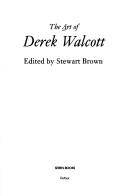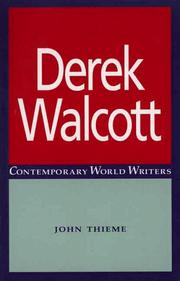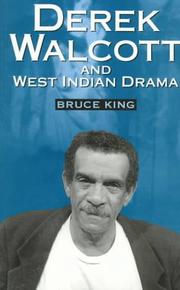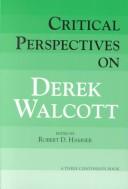| Listing 1 - 10 of 79 | << page >> |
Sort by
|
Book
ISBN: 3506728873 Year: 2005 Publisher: Paderborn : Paderborn : Ferdinand Schöningh, Nordrhein-Westfälische Akademie der Wissenschaften,
Abstract | Keywords | Export | Availability | Bookmark
 Loading...
Loading...Choose an application
- Reference Manager
- EndNote
- RefWorks (Direct export to RefWorks)

ISBN: 1854110217 1854110276 080231290X 9781854110275 Year: 1991 Publisher: Bridgend Seren
Abstract | Keywords | Export | Availability | Bookmark
 Loading...
Loading...Choose an application
- Reference Manager
- EndNote
- RefWorks (Direct export to RefWorks)

ISBN: 9780719042065 0719042062 0719042054 Year: 1999 Publisher: Manchester : Manchester University Press,
Abstract | Keywords | Export | Availability | Bookmark
 Loading...
Loading...Choose an application
- Reference Manager
- EndNote
- RefWorks (Direct export to RefWorks)

ISBN: 9780198184645 0198184646 Year: 1997 Publisher: Oxford Clarendon
Abstract | Keywords | Export | Availability | Bookmark
 Loading...
Loading...Choose an application
- Reference Manager
- EndNote
- RefWorks (Direct export to RefWorks)
Book
ISBN: 9401210071 9789401210072 9789042037571 9042037571 1306315522 Year: 2013 Volume: 172 Publisher: Amsterdam Rodopi
Abstract | Keywords | Export | Availability | Bookmark
 Loading...
Loading...Choose an application
- Reference Manager
- EndNote
- RefWorks (Direct export to RefWorks)
During the same period in which Derek Walcott was pouring immense physical, emotional, and logistical resources into the foundation of a viable first-rate West Indian theatre company and continuing to write his inimitable poetry, he was also busy writing newspaper reviews, chiefly for the Trinidad Guardian . His prodigious reviewing activity extended far beyond those areas with which one might most readily associate his interests and convictions. As Gordon Rohlehr once presciently observed, “If one wants to see a quotidian workaday Walcott, one should go back to [his] well over five hundred articles, essays and reviews on painting, cinema, calypso, carnival, drama and literature,” articles which “reveal a rich, various, witty and scrupulous intelligence in which generous humour counterpoints acerbity.” These articles capture the vitality of Caribbean culture and shed additional light on the aesthetic preoccupations expressed in Walcott’s essays published in journals. The editors have examined the corpus of Walcott’s journalistic activity from its beginnings in 1950 to its peak in the early 1970's, and have made a generous selection of material from the Guardian , along with occasional pieces from such sources as Public Opinion (Kingston) and The Voice of St. Lucia (Castries). The articles in Volume 2 are organized as follows: the performing arts; general surveys of anglophone Caribbean drama, theatre, and society; festivals, theatre companies, and productions; British and American drama; dance and music theatre; Carnival and calypso; and cinema screenings in Trinidad. Volume 2 additionally contains an exhaustive annotated and cross-referenced chronological bibliography of Walcott’s journalism up to 1990. The co-editor Christopher Balme has written a searching introductory essay on a central theme – here, a survey of West Indian theatre and Walcott’s engagement with it, particularly the idea of a ‘National Theatre’, coupled with an illustrative discussion of the playwright’s seminal dramatic spectacle Drums and Colours .
Book
ISBN: 9401210063 9789401210065 9042037563 1306350700 9789042037564 Year: 2013 Volume: 171 Publisher: Amsterdam
Abstract | Keywords | Export | Availability | Bookmark
 Loading...
Loading...Choose an application
- Reference Manager
- EndNote
- RefWorks (Direct export to RefWorks)
During the same period in which Derek Walcott was pouring immense physical, emotional, and logistical resources into the foundation of a viable first-rate West Indian theatre company and continuing to write his inimitable poetry, he was also busy writing newspaper reviews, chiefly for the Trinidad Guardian . His prodigious reviewing activity extended far beyond those areas with which one might most readily associate his interests and convictions. As Gordon Rohlehr once presciently observed, “If one wants to see a quotidian workaday Walcott, one should go back to [his] well over five hundred articles, essays and reviews on painting, cinema, calypso, carnival, drama and literature,” articles which “reveal a rich, various, witty and scrupulous intelligence in which generous humour counterpoints acerbity.” These articles capture the vitality of Caribbean culture and shed additional light on the aesthetic preoccupations expressed in Walcott’s essays published in journals. The editors have examined the corpus of Walcott’s journalistic activity from its beginnings in 1950 to its peak in the early 1970s, and have made a generous selection of material from the Guardian , along with occasional pieces from such sources as Public Opinion (Kingston) and The Voice of St. Lucia (Castries). The articles in Volume 1 are organized as follows: Caribbean society, culture, and the arts generally; literature and society; periodicals; anglophone poetry, prose fiction, and non-fiction; African and other literatures; and the visual arts (Caribbean and beyond). The volume closes with a selection of Walcott’s mis-cellaneous satirical essays. The volume editor Gordon Collier has written a searching introductory essay on a central theme – here, a critical, comparative analysis of Walcott’s development as journalist against the historical background of press activity in the Caribbean, coupled with an illustrative discussion (drawing on Walcott’s newspaper articles) of his attitudes towards prose fiction and poetry.
Book
ISBN: 9798986340135 Year: 2022 Publisher: Medford : Arrowsmith Press,
Abstract | Keywords | Export | Availability | Bookmark
 Loading...
Loading...Choose an application
- Reference Manager
- EndNote
- RefWorks (Direct export to RefWorks)
One of the most important poets of the last hundred years, Derek Walcott was also a gifted painter, an accomplished and award-winning man-of-the-theatre (a playwright, a director, and founder of two theaters, the Trinidad Theatre Workshop and the Playwrights' Theatre) as well as a devoted teacher. In this volume, Walcott's friends, collaborators, editors, and former students-many of them accomplished writers themselves-pay tribute to this multifaceted artist in essays which include memoirs, close readings, and letters.
Book
Year: 2022 Publisher: Newcastle upon Tyne : Cambridge Scholars Publishing,
Abstract | Keywords | Export | Availability | Bookmark
 Loading...
Loading...Choose an application
- Reference Manager
- EndNote
- RefWorks (Direct export to RefWorks)
Coming some five years after the death of poet, playwright, teacher and painter Derek Walcott, this book brings together essays, memoirs, and creative work addressing many aspects of his life and work. 20 years after Walcott became the first Caribbean writer to win the Nobel Prize for Literature, this volume gathers renowned and emerging poets, friends, theatre critics and artists to lay bare their own relationship with a larger-than-life figure and cast their ‘various light’ on his by-no-means unproblematic legacy.

ISBN: 0894101412 Year: 1993 Publisher: Washington, DC : Three Continents Press,
Abstract | Keywords | Export | Availability | Bookmark
 Loading...
Loading...Choose an application
- Reference Manager
- EndNote
- RefWorks (Direct export to RefWorks)
Book
ISBN: 9782406062592 2406062597 Year: 2017 Volume: 7 Publisher: Paris: Classiques Garnier,
Abstract | Keywords | Export | Availability | Bookmark
 Loading...
Loading...Choose an application
- Reference Manager
- EndNote
- RefWorks (Direct export to RefWorks)
Cette étude aborde le théâtre de Derek Walcott et d'Aimé Césaire à travers le prisme de la Relation (théorie d'Édouard Glissant), convoquant, par ailleurs, la dialectique hégélienne et la théorie dramatique de Bertolt Brecht pour fournir des perspectives nouvelles sur les esthétiques des auteurs.
| Listing 1 - 10 of 79 | << page >> |
Sort by
|

 Search
Search Feedback
Feedback About UniCat
About UniCat  Help
Help News
News